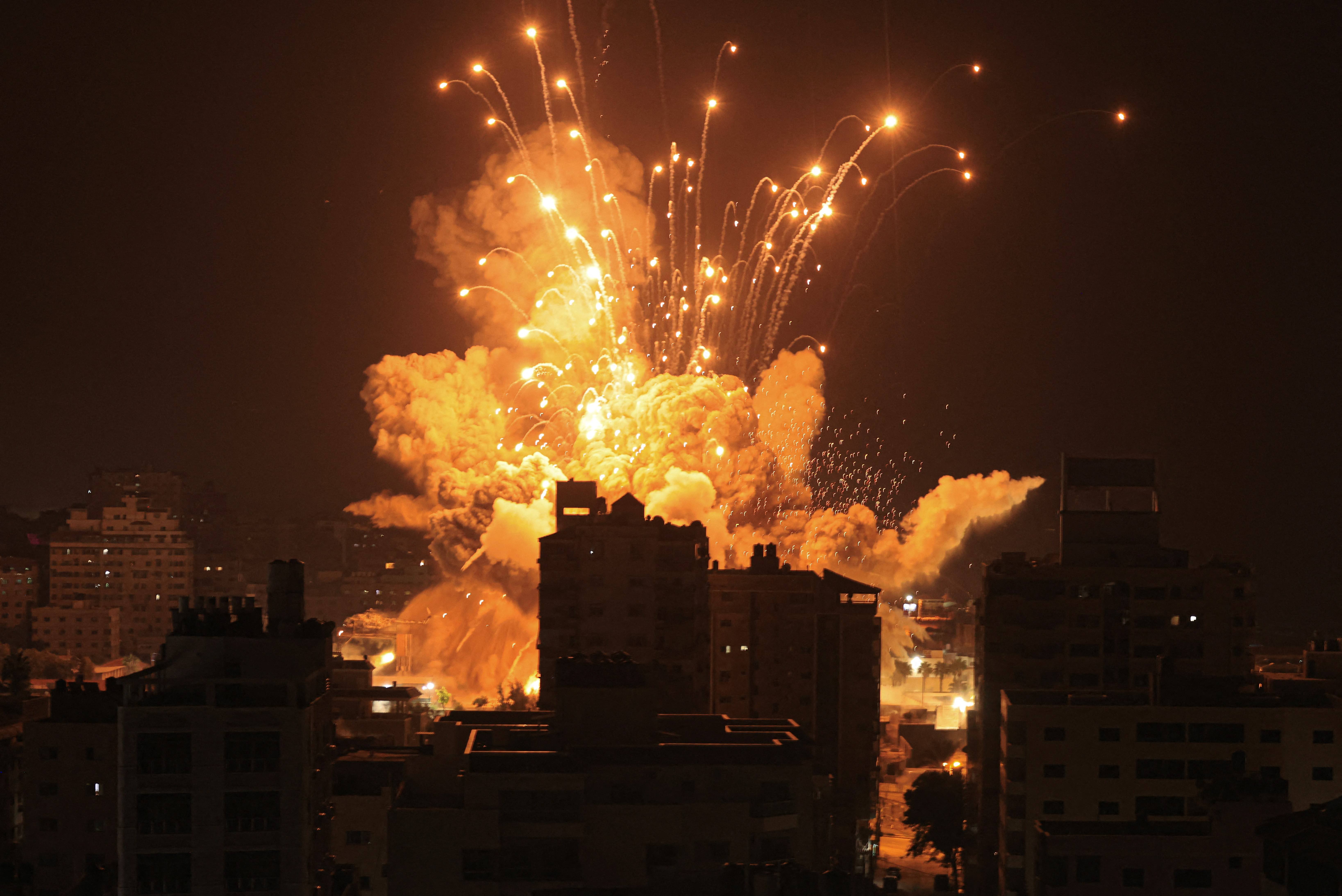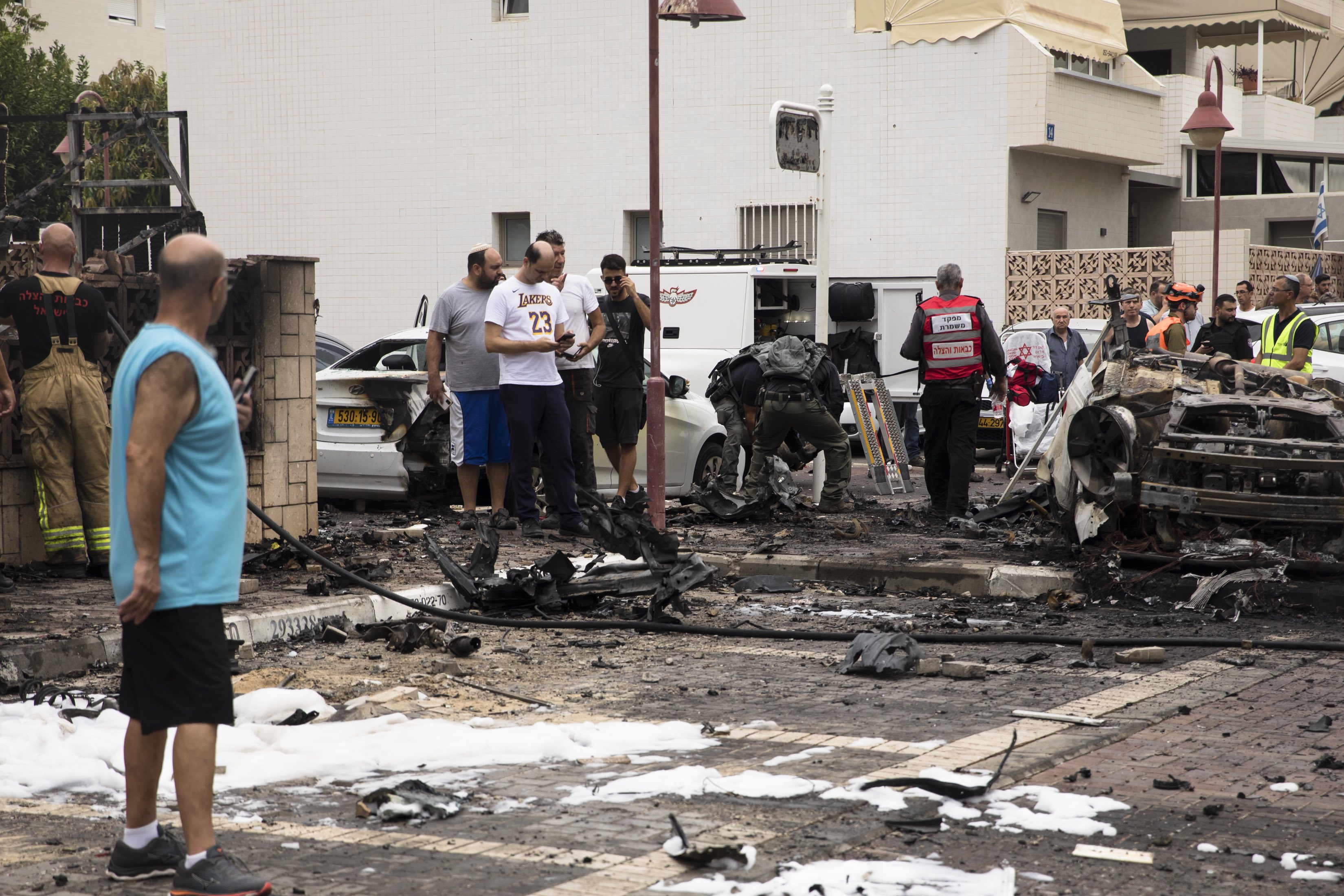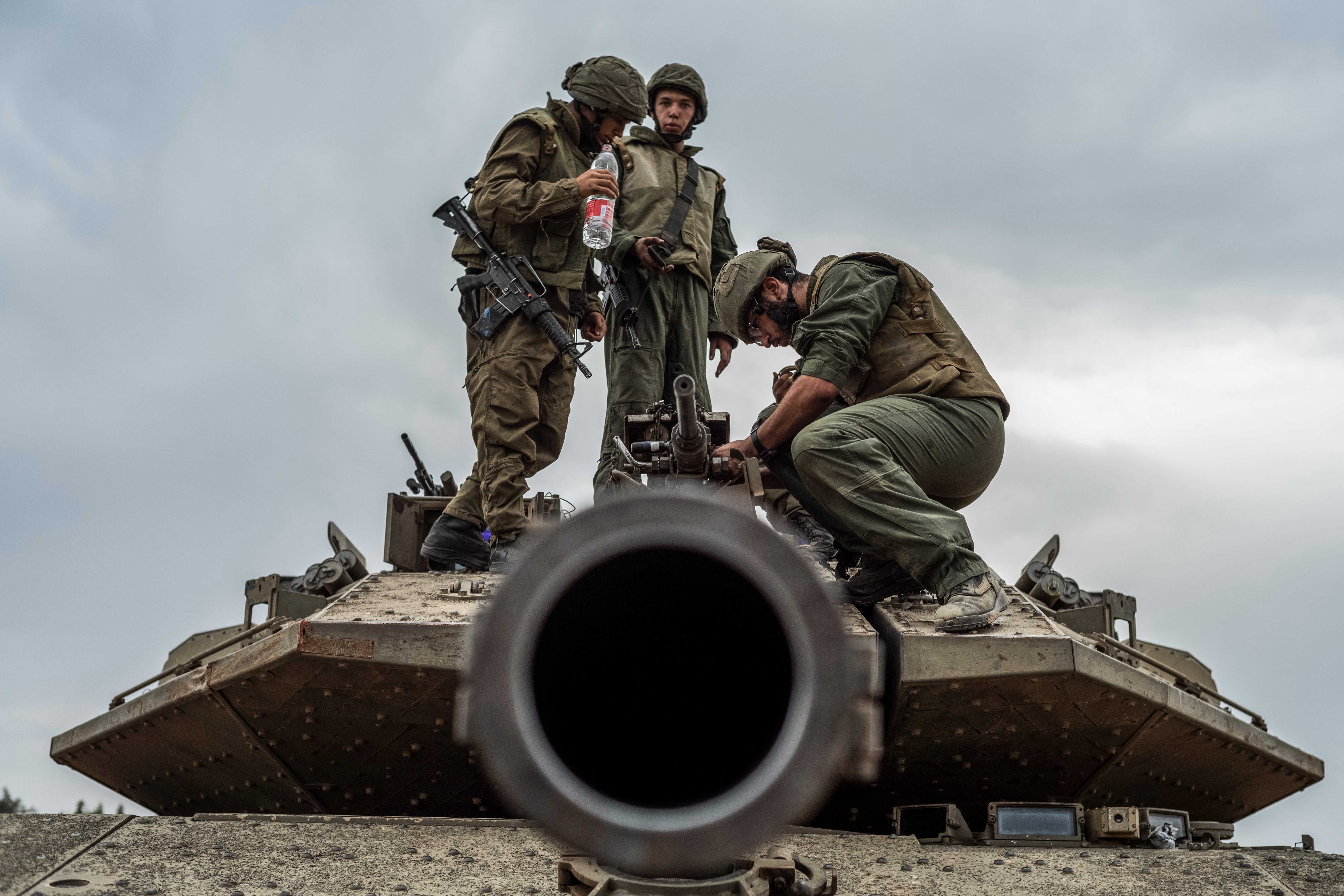
Politics & Society
Does it matter that strikes against Syria violate international law?

Hamas’ surprise attack on Israel marks a dramatic escalation in the longstanding Israeli-Palestinian conflict
Published 10 October 2023
On Saturday, Palestinian militants from the armed group Hamas launched a surprise, coordinated attack on Israel.
In response, Israeli Prime Minister Benjamin Netanyahu declared that Israel “is at war”, vowing to exact an “unprecedented price” and launched retaliatory attacks which included cutting off electricity, food, fuel and water to the Gaza Strip, along with many airstrikes.

Currently, at least 900 people have died in Israel, including 260 people massacred by Hamas gunmen at a music festival.
Since then, Israel has begun striking Gaza in response – at least 700 people have died on the Palestinian side.
Hamas fighters are holding dozens of Israeli hostages who (it’s believed) are being held in locations across Gaza.

Politics & Society
Does it matter that strikes against Syria violate international law?
Dr Simon Frankel Pratt is a lecturer in Political Science at the School of Social and Political Sciences specialising in international politics and security.
We asked him about what you need to know about the conflict so far.
These attacks caught Israel by surprise and, after breaking through checkpoints and fences around the Gaza Strip, Hamas (and Palestinian Islamic Jihad) fighters found the area nearly defenceless.
Numbering nearly a thousand under current estimates, these fighters were able to defeat not only those IDF forces they encountered but also kill hundreds of Israeli civilians, in many cases going house-to-house in nearby towns and gunning down several hundred attendees of a music festival.

Additionally, these fighters were able to take dozens of Israelis prisoner, both military and civilian.
Videos taken by both Israelis and Palestinians widely document these things. This makes these attacks the single deadliest day for Israel since its creation and reflects an intelligence failure of enormous proportions.
Public statements by the current government and defence leadership in Israel suggest that the war will follow an already established pattern of ‘mowing the grass’ – a metaphor referring to periodic bombardments of and incursions into the Gaza Strip to attack and erode Hamas as an organisation.

Politics & Society
Daring to resolve conflicts without war
It is likely, however, that the scale of this operation will be much greater than in previous ones. It may take weeks and involve a temporary reoccupation of much of the Gaza Strip.
While some Israeli officials and politicians have vowed to completely destroy Hamas or to reoccupy the Gaza Strip for a longer term, these outcomes are unlikely (although not impossible), as accomplishing them would require extraordinary risks and commitments by the IDF.
Some Israeli officials and politicians have also vowed to completely destroy the Gaza Strip, but these expressions of genocidal intent are likely hyperbolic, and this outcome is very improbable.
While some have alleged that Iran is behind these attacks, I do not yet believe the evidence shows this.

Hamas is capable of executing this on its own, and Israeli intelligence sources appear to confirm this assessment, as the full shape of its operational planning becomes clearer.
It is likely that Hamas had some communication with Iran, as Iran is a patron, but that does not mean Iran was operationally involved.
It is very clear, though, that Hamas is better equipped and more capable than Israel thought, and most significantly, that Israel’s intelligence community was mistaken in its assessment that Hamas did not have any appetite for renewed hostilities at this time.

Politics & Society
The Afghanistan withdrawal: This is what decolonisation looks like
It is difficult to speculate on the overall impact of stability on the region, but by and large, Israel’s neighbours are not likely to do much.
Hizballah or Hezbollah – a Shiite Muslim political party and militant group based in Lebanon – could join the fighting and open a second front to Israel’s north. And Israel would likely respond with attacks throughout the south of Lebanon.
While Hizballah has fired some rockets and mortars, and there may have been some limited exchanges of gunfire with IDF forces on the northern border, so far there is no indication of a larger conflict opening up.
However, fighters from Palestinian militant groups may attempt to attack that border too – one raid has already been claimed by Palestinian Islamic Jihad.

Of course, if Iran were found to be significantly involved, Israel would likely retaliate, but as noted, I think this is unlikely. I suspect that Hamas and the Gaza Strip are on their own.
Overall, I would caution against excessive forecasting or prognostication, and I would urge both patience and big-picture thinking.
The backdrop to this act of military-scale violence is the long siege of the Gaza Strip and the conditions of the occupation of the West Bank more generally.
Many Israelis will hold Netanyahu responsible for escalating tensions and depriving Palestinians of any hope for their future independence and autonomy.
They will also ask why the current government redeployed so many of its Gaza-area military forces to the West Bank to protect Israeli settlers during the holiday period.
Had those forces not been redeployed, it is likely that the Hamas attack would have been thwarted much sooner. Indeed, my guess is that Hamas was surprised by their own success.
It is possible that Netanyahu’s government, which comprises mainly right and far-right elements, will fall as a result of the situation.
But for now, many possibilities exist, and observers are on firm ground only if they focus on what they know for sure: that civilians are protected under the laws of armed conflict and under international humanitarian law, that all parties to fighting are obligated to avoid targeting civilians, and that fighting in crowded urban conditions usually causes massive injury and death to bystanders – even when it doesn’t directly target them.
Donations to the Red Crescent, Magen David Adom, the International Committee of the Red Cross or Médecins Sans Frontières are all effective ways for international readers to help victims without taking any sides.
Banner: A missile explodes in Gaza City during an Israeli air strike/Getty Images